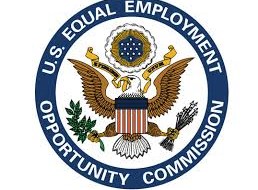
The Pregnant Workers Fairness Act (PWFA) is a new law that requires covered employers to provide “reasonable accommodations” to a worker’s known limitations related to pregnancy, childbirth, or related medical conditions, unless the accommodation will cause the employer an “undue hardship.”
The PWFA applies only to accommodations. Existing laws that the Equal Employmennt Opportunity Commission (EEOC) enforces make it illegal to fire or otherwise discriminate against workers on the basis of pregnancy, childbirth, or related medical conditions.
The PWFA does not replace federal, state, or local laws that are more protective of workers affected by pregnancy, childbirth, or related medical conditions.
So what should you know about the PWFA?
The PWFA protects employees and applicants of “covered employers” who have known limitations related to pregnancy, childbirth, or related medical conditions. ”Covered employers” include private and public sector employers with at least 15 employees, Congress, Federal agencies, employment agencies, and labor organizations.
Reasonable accommodations” are changes to the work environment or the way things are usually done at work. The House Committee on Education and Labor Report on the PWFA provides several examples of possible reasonable accommodations including the ability to sit or drink water; receive closer parking; have flexible hours; receive appropriately sized uniforms and safety apparel; receive additional break time to use the bathroom, eat, and rest; take leave or time off to recover from childbirth; and be excused from strenuous activities and/or activities that involve exposure to compounds not safe for pregnancy.
Employers are required to provide reasonable accommodations unless they would cause an “undue hardship” on the employer’s operations. An “undue hardship” is significant difficulty or expense for the employer.
Covered employers cannot:
Require an employee to accept an accommodation without a discussion about the accommodation between the worker and the employer;
Deny a job or other employment opportunities to a qualified employee or applicant based on the person’s need for a reasonable accommodation;
Require an employee to take leave if another reasonable accommodation can be provided that would let the employee keep working;
Retaliate against an individual for reporting or opposing unlawful discrimination under the PWFA or participating in a PWFA proceeding (such as an investigation); or
Interfere with any individual’s rights under the PWFA.
There are other laws that apply to workers affected by pregnancy, childbirth, or related medical conditions. They include Title VII (enforced by the EEOC), the ADA (enforced by the EEOC), the Family and Medical Leave Act of 1993 (enforced by the U.S. Department of Labor), and the PUMP Act (Providing Urgent Maternal Protections for Nursing Mothers Act) (enforced by the U.S. Department of Labor).
For more information on the PWFA here.












